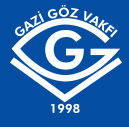2M.D. Asistant, Beyoglu Eye Training and Reseach Hospital, Istanbul/TURKEY
3M.D. Associate Professor, Beyoglu Eye Training and Reseach Hospital, Istanbul/TURKEY
4M.D. Professor, Beyoglu Eye Training and Reseach Hospital, Istanbul/TURKEY Purpose: To evaluate the efficacy and safety of alternating treatment with bevacizumab and ranibizumab in exudative age-related macular degeneration (AMD).
Materials and Methods: The treatment naïve exudative AMD patients who were treated alternatively with bevacizumab and ranibizumab were retrospectively included in the study. The patients initially received 3 consecutive monthly injections, and then were treated on an as-needed treatment regimen depending on clinical examination and optical coherence tomography findings. The patients were evaluated in regards of best corrected visual acuity (BCVA), central macular thickness (CMT), injection numbers, and complications.
Results: A hundred and twelve eyes of 107 patients were included in the study. The mean age was 72.4±8.0 years (ranging between 52 and 88 years). Sixty patients (56.1%) were male, and 47 patients (43.9%) were female. The mean follow-up time was 18.1±4.7 months (ranging between 12 and 24 months). The mean pretreatment BCVA was 0.80±0.27 LogMAR, the mean BCVA at month 12 was 0.71±0.34 LogMAR (p=0.003), and the mean BCVA at the most recent follow-up was 0.71±0.38 LogMAR (p=0.017). The mean pretreatment CMT was 316±93 microns, the mean CMT at month 12 was 253±67 microns (p=<0.0001), and the mean CMT at the most recent follow-up was 251±78 microns (p=<0.0001). The mean number of injections at month 12 was 4.8±1.3 injections (ranging between 3 and 8).
Conclusion: The efficacy and safety of both bevacizumab and ranibizumab is proven in the treatment of exudative AMD, the alternating treatment of exudative AMD with bevacizumab and ranibizumab is also an effective and safety treatment option.
Keywords : Bevacizumab, ranibizumab, age-related macular degeneration




